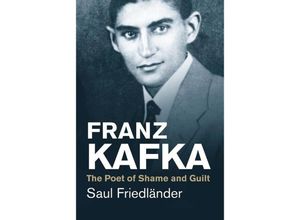Franz Kafka was the poet of his own disorder. Throughout his life he struggled with a pervasive
sense of shame and guilt that left traces in his daily existence in his many letters in his
extensive diaries and especially in his fiction. This stimulating book investigates some of
the sources of Kafka s personal anguish and its complex reflections in his imaginary world.In
his query Saul Friedlander probes major aspects of Kafka s life (family Judaism love and sex
writing illness and despair) that until now have been skewed by posthumous censorship.
Contrary to Kafka's dying request that all his papers be burned Max Brod Kafka s closest
friend and literary executor editedand publishedthe author s novels and other works soon after
his death in 1924. Friedlander shows that when reinserted in Kafka s letters and diaries
deleted segments lift the mask of sainthood frequently attached to the writer and thus restore
previously hidden aspects of his individuality.



